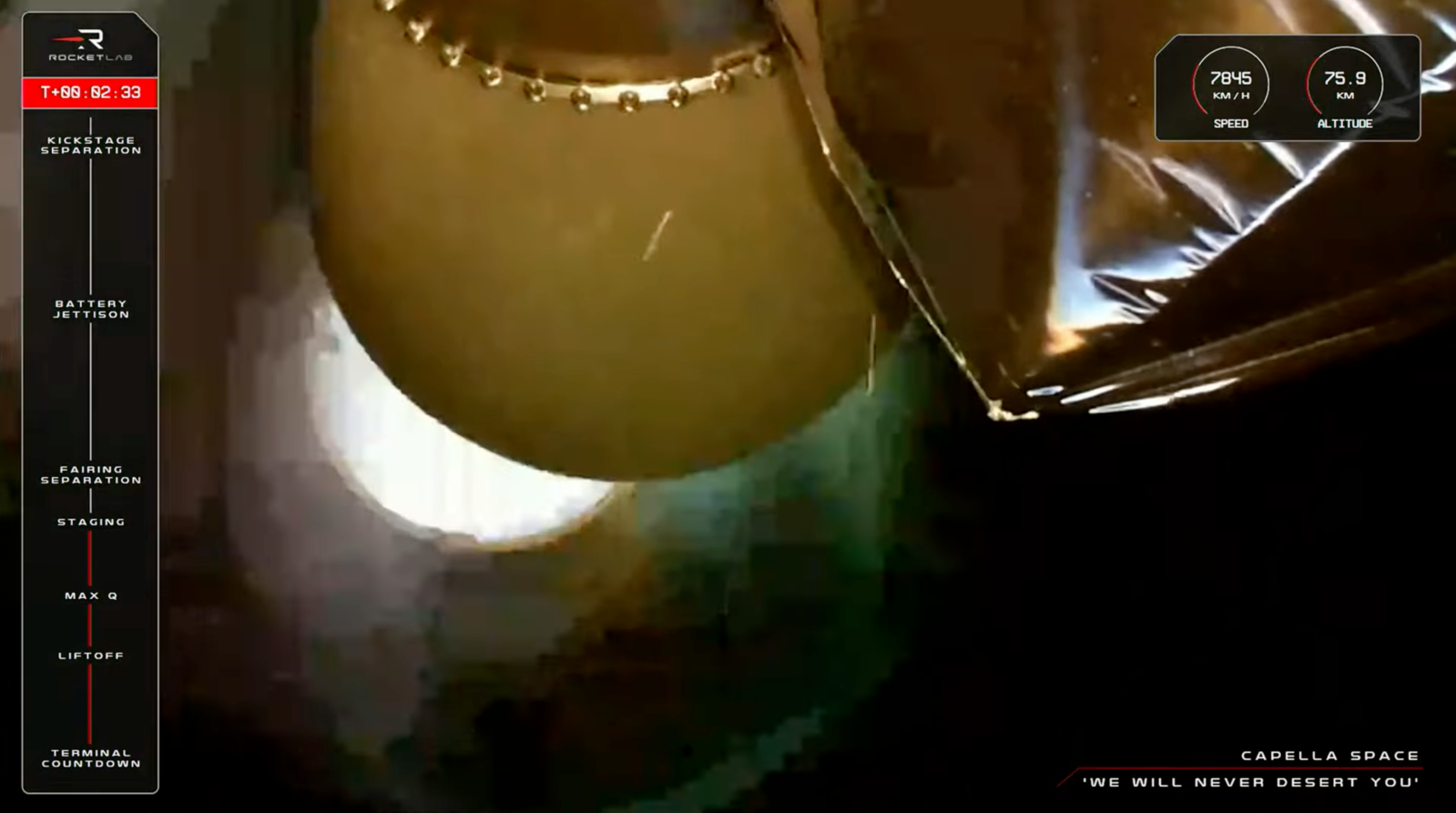
Early Tuesday morning Rocket Lab attempted its eighth launch of 2023 out of New Zealand. Sadly this mission would not make it to orbit after suffering a failure during flight.
Rocket Lab second stage fails after separation
At about 2:56 A.M. ET a Rocket Lab Electron rocket lifted off from LC-1B at the Māhia Peninsula in New Zealand. The first stage performed what appeared nominally, delivering the rocket high above the atmosphere.
After about two and a half minutes of flight, the first stage completed its fuel and shut down its engines. After engine shutdown the rocket proceeded in stage separation and what looked like start up of the second stage engine. The video feed froze after that point.
The failure looks to have shown up shortly after second engine start on Electron’s second stage as Rocket Lab confirmed in a statement it had good first stage burn and stage separation. This is not the first failure of Rocket Lab’s second stage, actually all three of Electron’s production failures were with the second stage.
Rocket Lab’s second failure was due to a faulty electrical connection and the third due to an engine ignitor fault. Electron’s first failure, on the rocket’s inaugural launch, had nothing to do with the rocket and was determined to be found on the ground. So in total, this is failure number four for Rocket Lab’s Electron.
The failure had an effect on the company’s stock price, bringing the price to the low $4 and into the $3 range for a bit Tuesday morning. By the time the NASDAQ closed the stock recovered to $4.66 a share. While this is low compared to what Rocket Lab started with back in 2021 when it went public during a SPAC merger, the current stock price is up about 24% this year according to CNBC.
Join our Discord Server: Join the community with forums and chatrooms about space!
What does this mean for Rocket Lab’s double-digit year?
So for those worried what this means for Rocket Lab’s big year of finally hitting double digit launches in 2023, this will definitely have an effect. But if history has anything to show, the company has usually bounced back pretty quick after failures.
In 2020 when Rocket Lab experienced its first post production inflight-failure the company was able to return to flight after only 59 days. Then in 2021 when it suffered it’s second post production failure Rocket Lab was able to return after only 76 days. So both times it was about two months.
How long it takes a rocket to return to flight after a failure depends on the root cause. The more complex the issue, the longer it will take. Rocket Lab has already began an investigation with the FAA to determine the root cause. We will just have to wait for an update in due time to see what the actual cause was of the failure and how long until they can launch again.
Rocket Lab had its ninth mission sitting and waiting out in New Zealand to launch as soon as the end of September. However that will now be delayed until after the investigation and corrective actions are in place.
It would be tight if Rocket Lab has another two month delay for it to launch two more rockets this year. Also, you’d want to launch three so you can say you had 10 successful launches in a year but I would never count Peter Beck and Rocket Lab out of doing anything that crazy. It would, however, be a rather unprecedented cadence for the company to pull off.
FTC: We use income earning auto affiliate links. More.




Comments